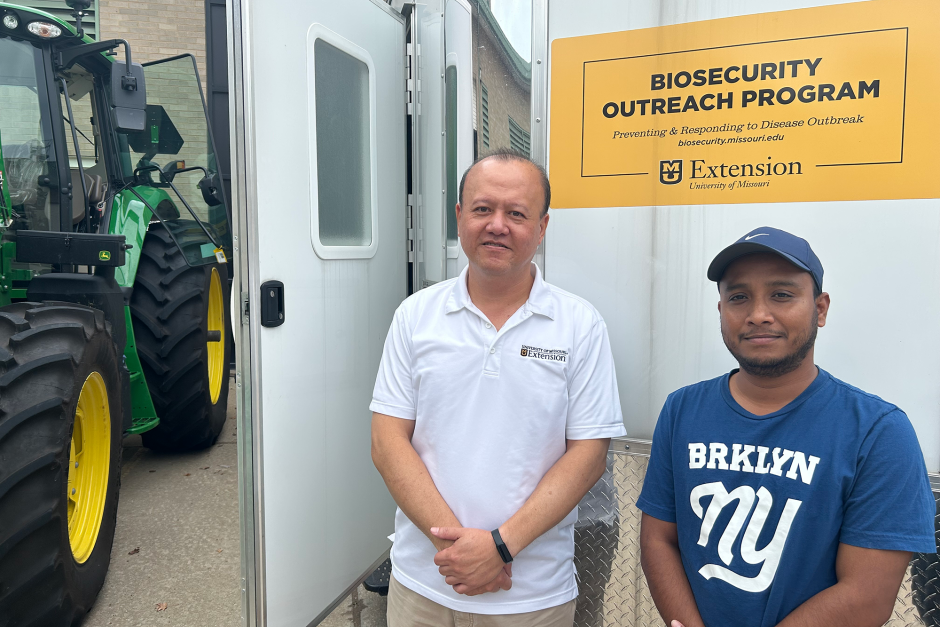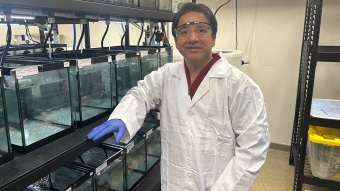
Oct. 21, 2025
Contact: Brian Consiglio, consigliob@missouri.edu
Photo by Brian Consiglio
Farmers handle a wide range of responsibilities to keep operations running — and a routine but often overlooked duty is safely disposing of dead livestock. Left unattended, carcasses can spread disease and jeopardize entire herds or flocks.
To help farmers manage the risk, University of Missouri researchers have been traveling the state, leading workshops on proper and safe composting methods. These trainings also informed a recent study showing that measured amounts of wood chips, sawdust and old compost help carcasses decompose safely while preventing the spread of disease.
“Whether it’s avian influenza or any number of disease outbreaks that can quickly wipe out thousands of farm animals, we ultimately want to help farmers improve their biosecurity practices so disease outbreaks don’t happen in the first place,” Teng-Teeh Lim, extension professor in the College of Agriculture, Food and Natural Resources. said. “In the past, a dead animal might just get thrown into the woods so nature could take care of it. But if that animal was diseased, that’s exactly how disease can spread.”
Lim and Mizzou graduate student Rana Das recently led hands-on workshops across Missouri, showing farmers ways to compost animal remains safely and effectively.
“The goal is to raise the internal temperature inside the compost pile to 131 degrees Fahrenheit for at least three consecutive days so that all of the pathogens can be inactivated,” Das said. “I was amazed to see that the farmers at these workshops were very interested in learning specific details about the proper method of constructing compost piles, particularly related to nitrogen and carbon ratios and moisture content. It was great to see them so engaged and gaining knowledge that they can take back to their farms.”
The research and trainings build on a decade of collaboration between MU Extension, the Missouri Department of Agriculture and the Missouri Department of Natural Resources to help farmers proactively prevent outbreaks of disease.
Alongside composting, the sessions also promoted MU Extension’s Biosecurity Outreach Program. As part of the program, Lim and colleagues bring their biosecurity trailer to workshops across Missouri to demonstrate the Danish Entry System, a strict hygiene and biosecurity protocol used on livestock farms. The entry system emphasizes practices such as hand sanitizing and wearing farm-dedicated shoes and clothing to reduce the chance of outside pathogens being brought onto a farm and putting animals at risk.
“We’ve gotten a lot of positive feedback from farmers attending these workshops,” Lim said. “Through these community outreach efforts, we are making big impacts throughout Missouri, preparing our state to prevent outbreaks of disease.”
“Enhancing on-farm biosecurity education and mortality composting practices in Missouri, USA” was published in Compost Science & Utilization.



